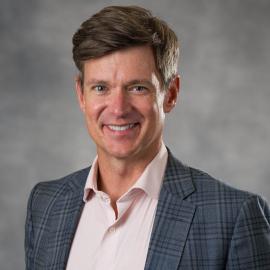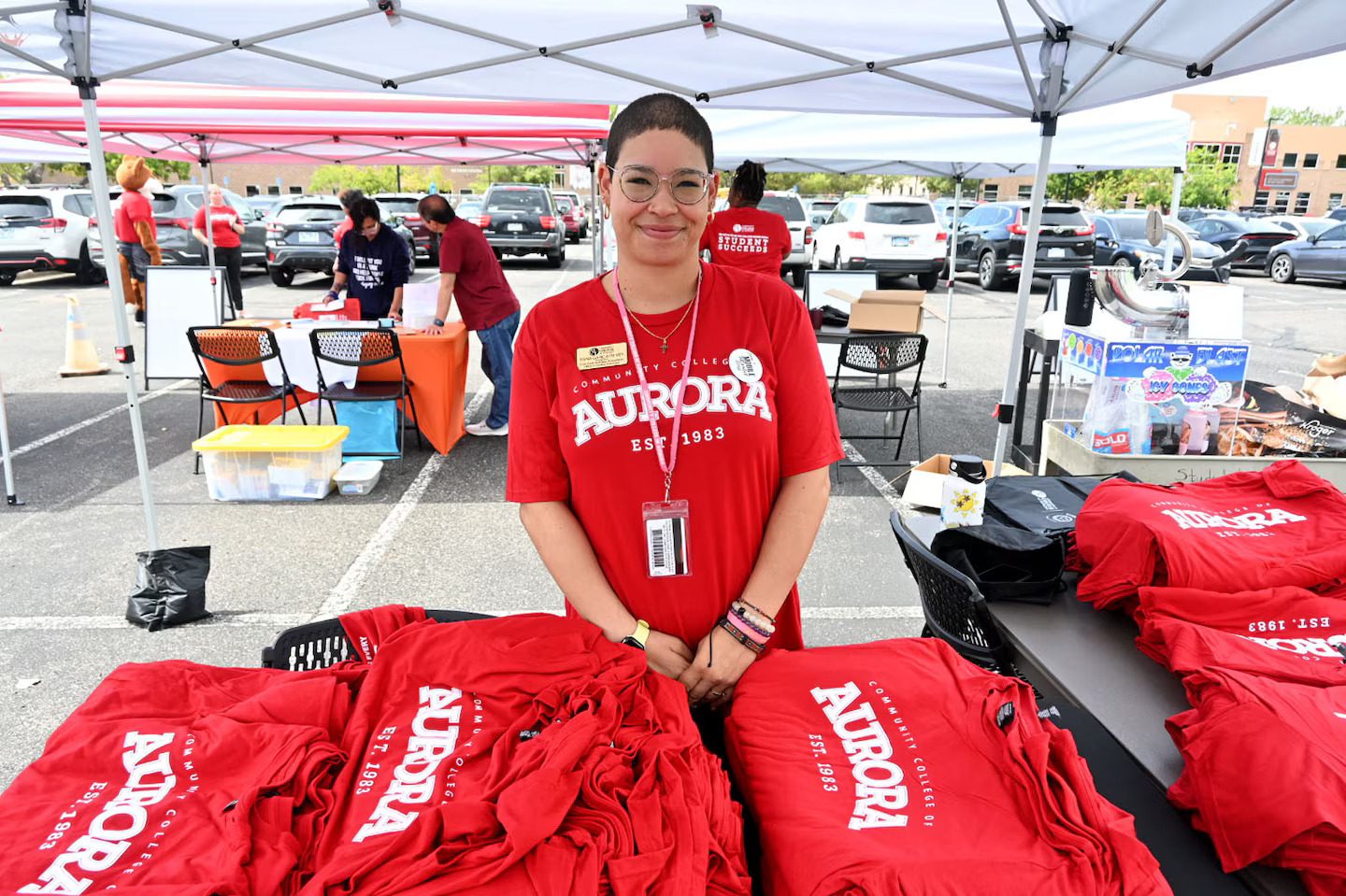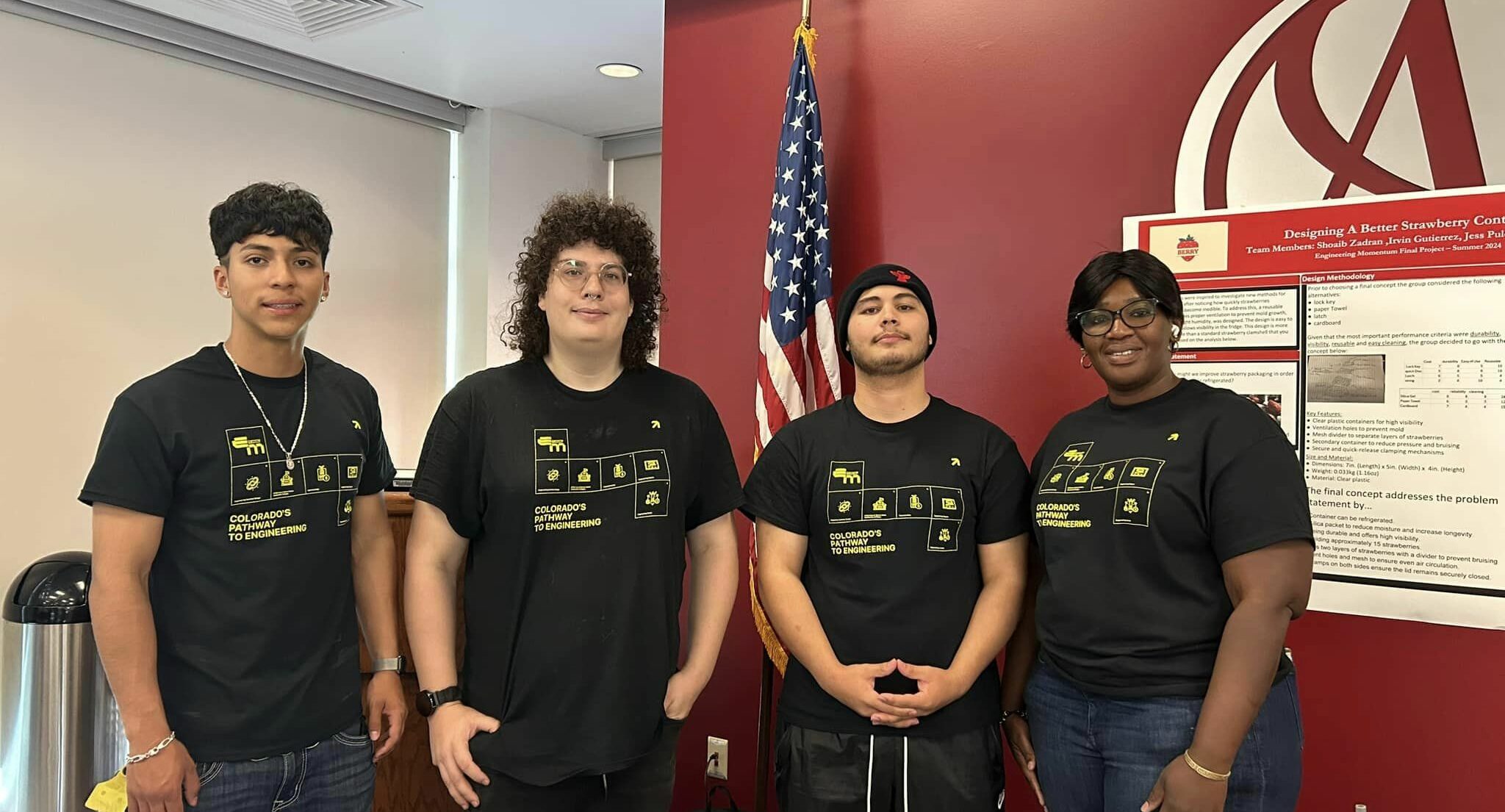
As the aerospace industry takes off in Colorado, community colleges are busy mapping out space-related programs designed to meet workforce needs. We sat down with Tom Coakley, an academic dean at Arapahoe Community College (ACC), to learn how he’s leveraging his unique background to forge new pathways for Colorado learners.
This interview has been edited for length and clarity.
Tell us about your background.

I’m a retired colonel who spent almost 25 years in the Air Force. As a commander, I led the Air Force’s space data processing training and ran Career and Technical Education (CTE) programs accredited through the Community College of the Air Force. We graduated about 14,000 students a year. I also led the Department of Defense Fire Academy, where we graduated about 1,500 firefighters a year.
I’ve done a lot of different things. I was a professor at the Air Force Academy, and I developed policy with the White House and the Pentagon during the Obama Administration. I was then stationed at Buckley Air Force Base in Aurora, Colorado, running a $75 billion Global Space Enterprise where I worked for both Space Command and the National Geospatial Intelligence Agency. After my years in the Air Force, I was a consultant to Space Command and the Missile Defense Agency. I did exciting work with SpaceX on the Starship program, but it still did not appeal to me the way education does.
I knew from running the college that it was incredibly satisfying to work with CTE students. After a career of service to the nation, I wanted to serve my state and my community and landed at ACC.
What trends are driving the growth of the aerospace industry?
Many market assessments, like a recent one from McKenzie Corporation, project that within 10 years, the global space economy will be worth $1.8 trillion. The backbone of the industry is everything from the launch and controlling of the sensors—the payloads on satellites—to GPS and communication services. But the vast majority is actually building capacity to use space data to enhance other things.
For example, John Deere builds those big green tractors and harvesting equipment. Those are very technologically sophisticated platforms with satellite receivers on board. The data can inform the best time to plow or precision watering of crops. I think there are opportunities to start building programs that allow students to really enhance some of our agricultural practices.
What needs are you hearing from employers?
When you talk with senior military officers and senior space-industry leaders, they’re thinking very strategically—often 15 to 20 years out. Data analytics is probably the biggest general skill in demand, but so is “space-mindedness.” This is an understanding of how space-specific physics and just old-fashioned movement in three and four dimensions can affect how we understand data produced from space.
Based on what I’m hearing, we’re also starting to look at AI (artificial intelligence) and being able to do beneficial things with data collections. We want community college students to be able to make informed decisions about how to train artificial intelligence models to get things done. There’s a lot of exciting work being done by faculty and administrators across the system in computer science departments and math departments. Art and philosophy departments are leading some amazing innovations as well.
Community colleges are uniquely poised to deliver trained technicians who can apply satellite data to solve real-world problems. And, of course, it’s two-year college graduates who take engineering design concepts and turn them into a reality.
What are some of the partnerships you’re developing?
Arapahoe Community College is the first community college in the nation to join Space Command’s Academic Engagement Enterprise (AEE). This gives us access to all kinds of workforce development tools like unclassified datasets and connections with space professionals working in Colorado and across the country. I’d like to invite other CCCS colleges to join and expand our footprint in the AEE.
I’ve also recently had conversations with the Earth Fire Alliance, a nonprofit that is launching the first of 50 satellites to detect and characterize wildfires around the globe in February 2025. We hope to build programs that allow ACC students to work with their satellite data and help with wildfire detection and response for Colorado. I think we could build online space-data programs for rural colleges suited to their workforce needs as well.
Colorado is also part of the National Security Council’s Space Workforce Coalition. I’m working with the Governor’s staff to think through what we can deliver. The stretch goal is getting Colorado community college students access to top secret security clearances to do national security-related data analysis. This will be difficult, but I think we can do it as a System if we partner with four-year colleges, the state, Colorado’s Congressional delegation, and industry.
Why should government and industry consider partnering with community colleges?
When it comes to programs in aerospace engineering, the system is already delivering high-quality two-year programs at colleges like Red Rocks Community College and Pikes Peak State College. This is critical work, but industry has much broader needs for its space workforce.
Community colleges are uniquely poised to deliver trained technicians who can apply satellite data to solve real-world problems. And, of course, it’s two-year college graduates who take engineering design concepts and turn them into a reality. In fact, most cleared space-industry workers got their start through accredited Career and Technical Education programs. Two-year degrees and certificates are the educational backbone of the American workforce.


